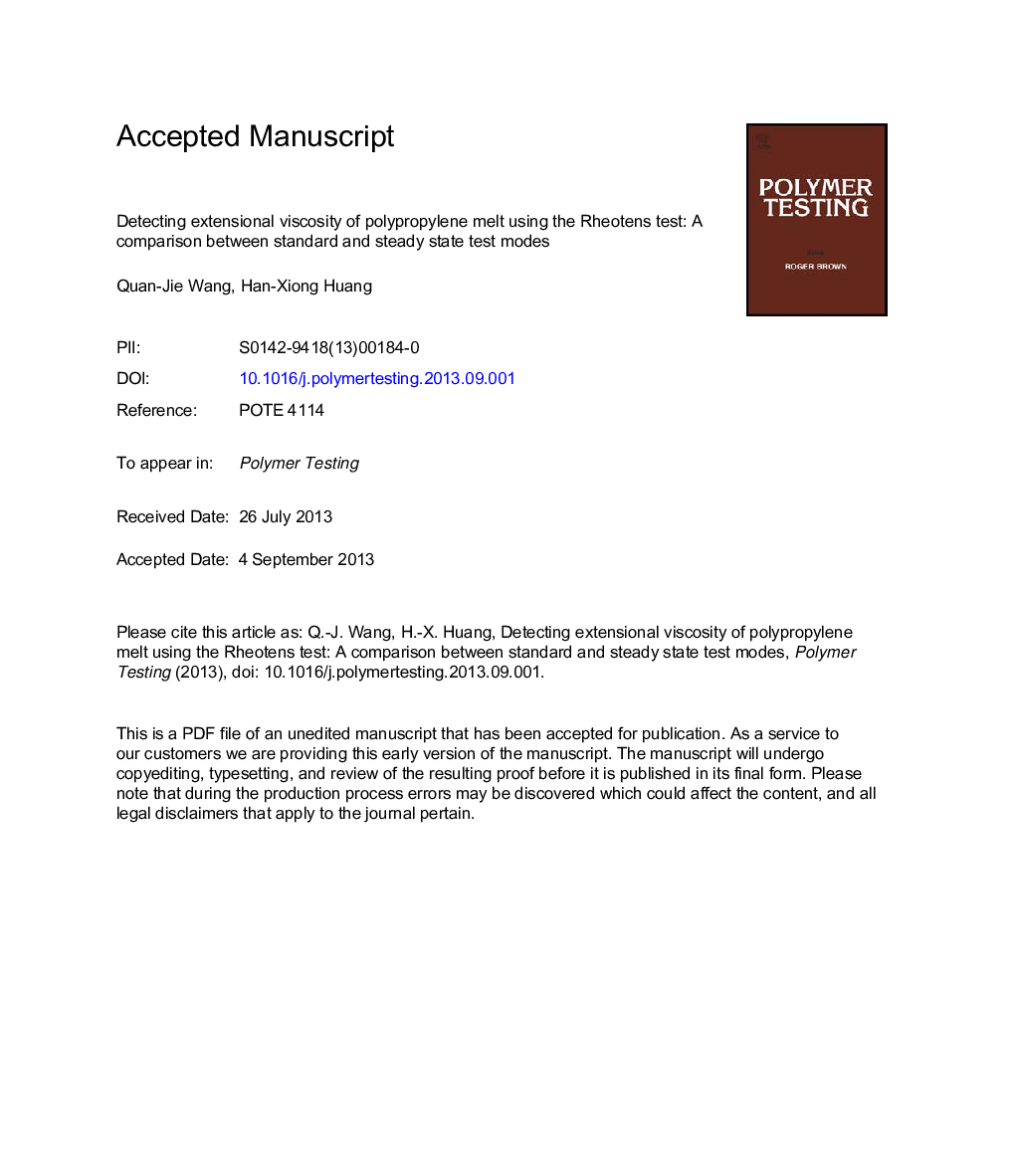| Article ID | Journal | Published Year | Pages | File Type |
|---|---|---|---|---|
| 5206344 | Polymer Testing | 2013 | 30 Pages |
Abstract
The Rheotens test was used to determine the extensional viscosity of a polypropylene (PP) melt at three different extrusion velocities and using two capillaries with different length-to-diameter ratios. Results showed that, in the standard Rheotens test, the extensional viscosity curves determined under different testing conditions exhibit an obvious difference, especially under low extensional strain rates. This is attributed to the pre-orientation of macromolecular chains taking place in the capillary. Hence, a steady state Rheotens test was tentatively proposed. It was demonstrated that the extensional viscosity curves determined under most of the testing conditions by this test mode almost overlap, which is attributed to the fact that the pre-orientation of chains relaxes sufficiently near the capillary exit. This implies that equivalent extensional viscosities can be obtained under a wider range of extrusion velocities and capillary length-to-diameter ratios. Moreover, the equivalent extensional viscosities determined in the steady state Rheotens test exhibit good agreement with the extrapolated extensional viscosity curve determined using the Cogswell convergent flow method.
Related Topics
Physical Sciences and Engineering
Chemistry
Organic Chemistry
Authors
Quan-Jie Wang, Han-Xiong Huang,
